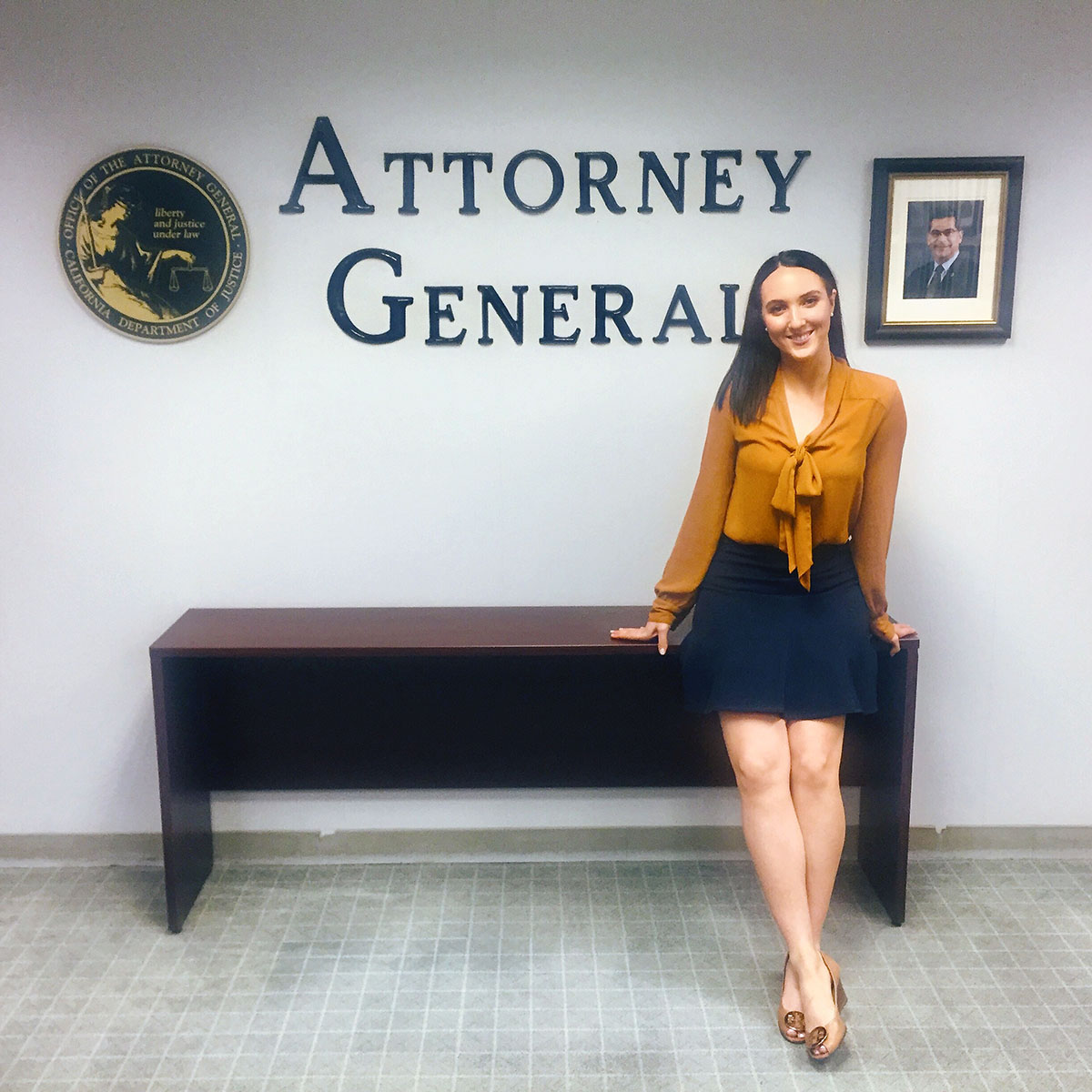Summer Job Diaries: California DOJ Intern Focuses on Prison Policy

Christina Coffin ’20 is spending her summer in the Correctional Law Section of the California Attorney General’s office. Her prior experience includes internships at a political consulting firm and the Public Policy Institute of California, where she conducted research on incarceration in the state.
Q: How did you land your summer job?
A: I met the intern coordinator for the Correctional Law Section of the California Attorney General’s Office at the Loyola Law School, Los Angeles Government Fair. I emailed her asking to meet in order to learn more about her work at the Attorney General’s Office and her career path. After meeting her for lunch and realizing that the intern program at the Attorney General’s Office would be a great fit, I applied, interviewed and received an offer shortly thereafter.
Q: What is the most interesting part of your job?
A: The most interesting part of my job has been going on prison site visits and seeing first-hand the impact prison realignment has on the prison system and, ultimately, our cases. These visits gave me better insight into the obstacles facing correctional staff and a full-circle experience. I researched prison realignment policies as an undergrad.
Additionally, part of my job requires working directly with inmates through depositions, as well as drafting responsive pleadings to federal and state complaints authored by inmates. Working on timely and interesting cases that require interpreting the U.S. Constitution has been fascinating.
Q: What has been your most challenging assignment thus far?
A: My most challenging assignment so far has been writing the cross examination of the plaintiff in a case expected to go to trial soon. Writing this examination not only required me to understand policies and procedures of the California Department of Corrections and Rehabilitation quickly, but also the nuances of how constitutional rights apply in a prison setting. Additionally, since the questions were going to be heard by a jury that likely had no experience with prisons or how they operate, it was necessary for me to break down the policies in question in order for them to be understood.
Q: What new legal skill have you acquired during your summer job?
A: My summer at the AG’s office has already given me a number of new skills in legal writing, conducting depositions and fact-finding. The opportunity to grasp a complete picture of how the California prison system operates, as well as the challenges it faces in regards to liability, have been invaluable. I learned how to approach unusual adversaries and still uphold the standards of practice upon which the Department of Justice prides itself. I’ve also had the opportunity to work on challenging legal writing projects such as drafting and refining jury instructions and working on two motions to dismiss from start to finish.
Q: What bit of legal knowledge have you been able to display?
A: I have been able to display my knowledge of the Federal Rules of Civil Procedure when working on a motion to dismiss, as well as my knowledge of constitutional law as it applies to the various civil rights issues present in correctional law. I have also been able to use my legal reasoning skills in assisting with a fact investigation in a wrongful death case.
Q: How has Loyola helped you map your career path?
A: I have found it incredibly valuable to meet with Loyola Career Development Office Associate Director Jill Myers, my career counselor, frequently to answer all of my questions regarding externships, course selection and experiential learning. These meetings have allowed me to understand my options for my particular legal interests and the specific steps I need to take to materialize those opportunities.
Learn how Loyola can help you make a difference. Visit our Admissions page for more information, or to apply!